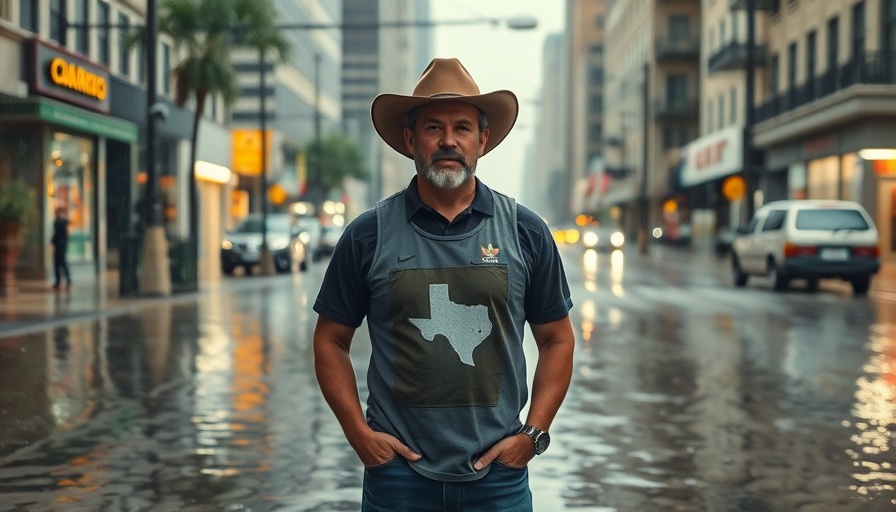
A Struggle Against Nature: A Mother's Resilience
In the wake of devastating floods that ravaged parts of Texas this summer, the story of one mother of five, Maria Rodriguez, has emerged as a testament to human endurance and spirit. As she returned to her cabin nestled in the woods, Maria was greeted not by the comfort of home but by the stark reality of destruction. The floodwaters had washed away memories and left only ruins behind; yet, in creating a safe haven for her children, Maria's strength shone through.
The Impact of Climate Change on Local Communities
This tragedy unfolds amid growing concerns over climate change, emphasizing the increasing frequency and intensity of natural disasters. Experts note that areas like Texas, particularly vulnerable to extreme weather patterns, may face more frequent flooding events. According to the National Oceanic and Atmospheric Administration (NOAA), climate patterns are shifting, contributing to unpredictable weather developments. Local authorities are now grappling with the monumental task of rebuilding while also considering strategies to mitigate future risks.
The Community's Response: A Network of Support
In the aftermath of the flooding, the local community in Angelina County has banded together, showcasing remarkable compassion and solidarity. Neighbors have come forward to offer essentials such as food, clothing, and funds—demonstrating that amid devastation, kindness prevails. Community organizations are stepping up, providing resources for families displaced by the floods, and rallying support from across the state. Maria's story is not just about her loss; it speaks to the greater narrative of resilience that these tough times evoke.
Lessons Learned: The Role of Preparedness in Disaster Response
Maria's experience underscores a crucial lesson in disaster preparedness. As homes are rebuilt, there is an urgent need for families in flood-prone areas to engage in proactive measures to safeguard their properties. This might include investing in elevated structures, flood-resistant materials, and comprehensive emergency plans tailored to their unique circumstances. Education and awareness campaigns about natural disaster readiness can empower individuals to take better control in future crises.
Policy Implications: Building a More Resilient Future
Moving forward, national and local policymakers must prioritize infrastructure and climate initiatives that enhance community resilience. Investing in technology and resources for early warning systems, improving drainage systems, and promoting sustainable development can mitigate the effects of future disasters. Strengthening urban planning policies and integrating climate risk assessments into local governance are vital steps for protecting vulnerable families like Maria's.
An Optimistic Outlook: Paving the Way to Recovery
Despite the overwhelming challenges and heartbreak faced by many, there is a flicker of hope for those affected. Maria’s determination to rebuild her life and ensure a secure future for her children reflects that resilience. Support from federal initiatives such as the Federal Emergency Management Agency (FEMA) can play a pivotal role in rapid recovery efforts, providing families with the financial assistance necessary to recover and start anew. In the face of adversity, stories like Maria’s highlight not only the human spirit's tenacity but also the willingness of a community to rise together.
Take Action: How You Can Help
As we reflect on the realities of disasters and their lasting impact on families, consider contributing to disaster relief efforts. Supporting local organizations involved in recovery initiatives can create a significant difference in the lives of families like Maria's. Every contribution matters, no matter how small, and can give individuals the strength to rebuild their lives anew.
 Add Element
Add Element  Add Row
Add Row 



 Add Row
Add Row  Add
Add 


Write A Comment